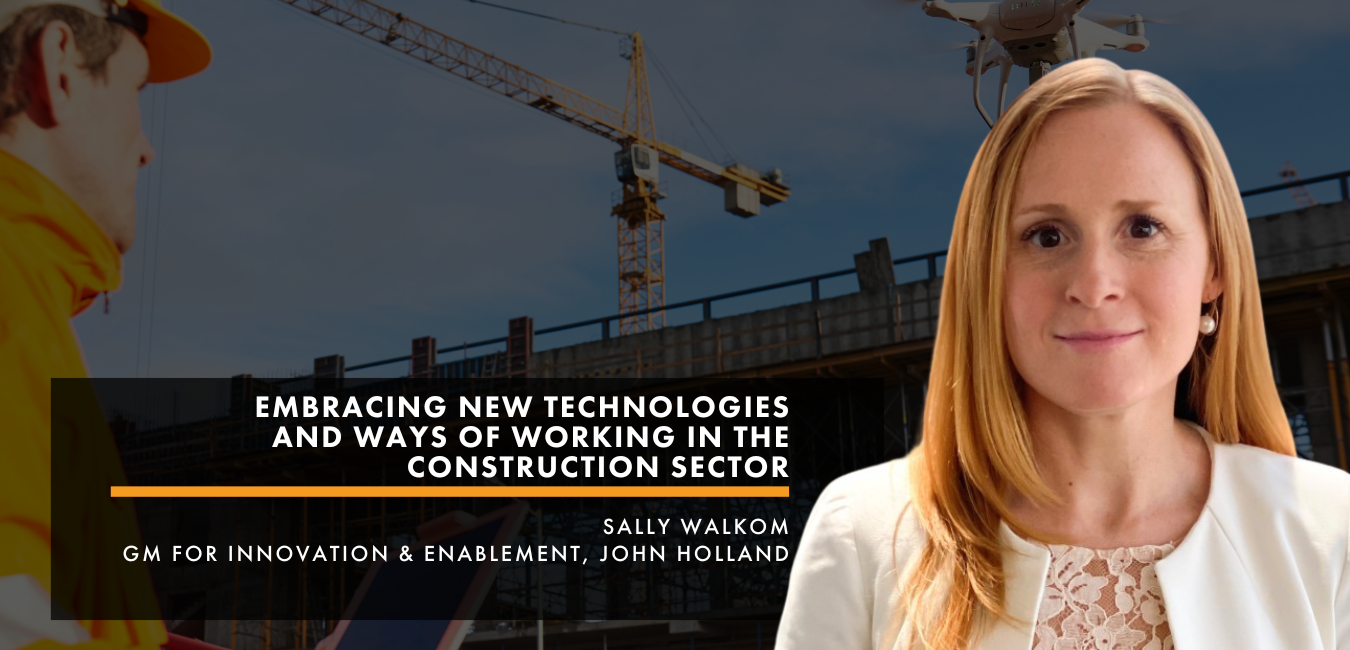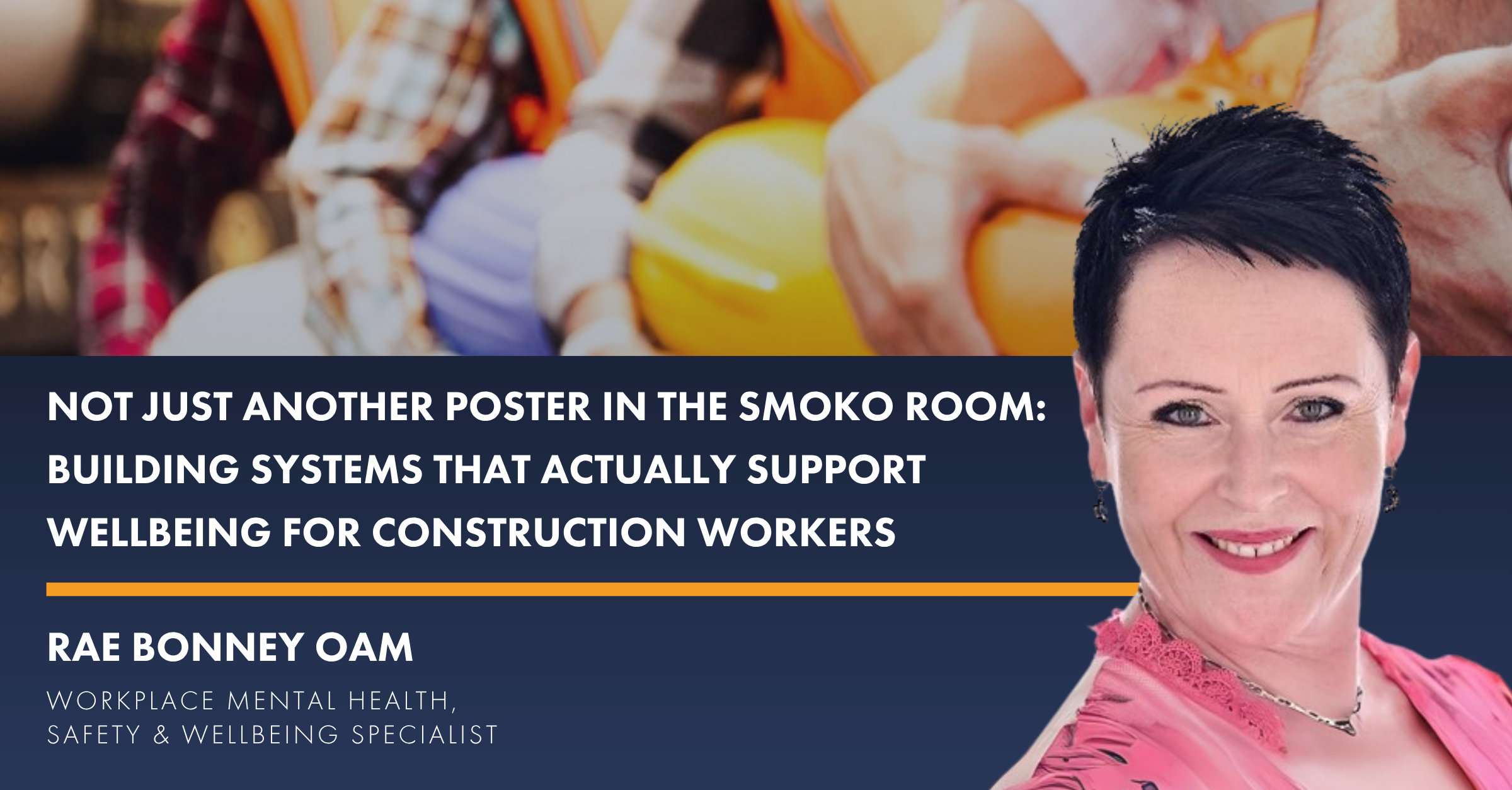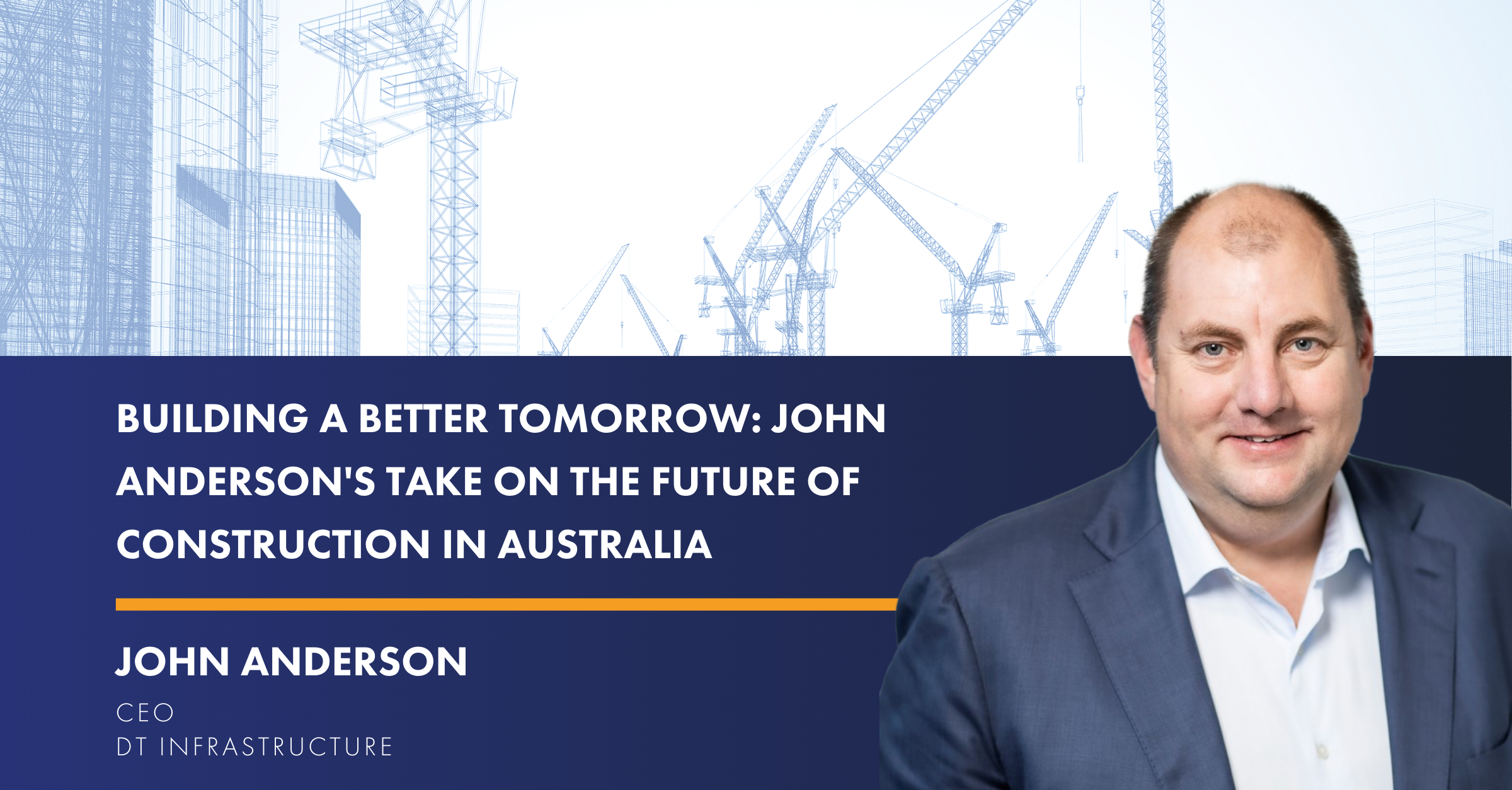FuturePlace Interview Spotlight, Sally Walkom
In the lead up to the 2nd annual Future of Construction Technology Summit, we interviewed Sally Walkom, John Holland’s GM for Innovation & Enablement. In this interview Sally shared her views on the importance of innovative new approaches, technologies and construction methods for the delivery of successful projects. The interview also covered the big trends Sally was seeing in the industry, the impacts of these, and what she was most excited about discussing and learning at the FCON-Tech Future of Construction Technology Summit.
FuturePlace: Can you start by telling us more about your role and what Innovation and Enablement means for John Holland?
Sally Walkom: I lead a team that supports and enables people across John Holland to innovate and share knowledge. We are helping people harness the power of their imaginations to deliver change that creates value by making us more productive, safe or sustainable. There are lots of ideas about how to do this but also lots of challenges, and it’s our role to help break these down. In doing this, we have a vision for the future of construction which we want to set us on the path towards.
FuturePlace: The industry has seen how the role of Innovation and new construction methods have become increasingly important to the successful and timely project delivery. What are the big trends that you are seeing in this space and what impacts are they having for you and your department?
Sally Walkom: We are seeing an increasing number and variety of viable drone and robotic technologies that have a material impact on our productivity and safety. I hope that the automation of discrete tasks – like drilling, testing and survey – will pave the way for more extensive applications that have so far proved elusive but can have much more significant productivity and safety benefits – like robotic earthworks, for example. The trend towards advanced AI in drones and robotics will also help enable these more significant but complex applications.
Recent government initiatives – like the release of the National Robotics Strategy and ARC funding for the UTS-led Research Hub ‘Human-Robot Teaming for Sustainable and Resilient Construction’ – suggest growing support and impetus for progress on robotics.
At the other end of the spectrum, large language models are having a significant productivity impact on some discrete office-based tasks in both tenders and constructions projects, such as reducing the time spent on repetitive compliance tasks. We may currently be in the hype cycle for AI, but I think this will level out as we understand and find the applications that are truly useful and can be embedded in current or new ways of working.
“I hope that the automation of discrete tasks – like drilling, testing and survey – will pave the way for more extensive applications that have so far proved elusive but can have much more significant productivity and safety benefits – like robotic earthworks, for example.”
FuturePlace: What are the opportunities that you see in Digital Innovation for construction professionals over the last year and looking ahead into the future?
Sally Walkom: Digitisation and modernisation of our workflows and systems is a big opportunity. We’re adopting more efficient digital processes for things like booking traffic management crews and paying our subcontractors. And we’re modernising our operating systems at an enterprise level.
We have also seen a phenomenon growth in digital engineering over the past few years. Our clients are demanding digital models and meta data. And while I mentioned the digitisation of workflows and systems earlier, really the digitisation of the existing environment and the digitisation of designs are equally important, if not more. The two combined will allow us to take a fully digitised approach to construction and drive efficiency and productivity.
Looking into the future is always a challenging task, but construction robots will be attracting quite a bit of attention. Construction robots are a potential solution to some of the serious challenges we are facing, such as skill shortages, productivity gaps and safety. In addition, the digitisation of construction and AI might pave the way for developing and deploying robots that are more capable of doing complex tasks that we have not yet been able to achieve yet.
“The use of recycled content in various construction materials continues to be a trend, as does low carbon concrete. We are getting better data on environmental and community impacts through various technologies. And we are reducing impacts on flora and fauna through digital tools, drones and robotics.”
FuturePlace: How are the big issues of Safety and Sustainability being addressed by new technologies?
Sally Walkom: The use of recycled content in various construction materials continues to be a trend, as does low carbon concrete. We are getting better data on environmental and community impacts through various technologies. And we are reducing impacts on flora and fauna through digital tools, drones and robotics. To name a few examples.
In relation to our carbon reduction plans, we are using passenger EVs on some work sites, trialling electric plant and investigating carbon abatement for diesel use. We are also trialling biofuels in plant and equipment and using various technologies and methods to reduce concrete and steel use and therefore our carbon footprint.
Our safety performance is improving through drone and robotic technologies that remove people from hazardous environments, VR and AR site inductions and online plant inductions, biomechanical safety footwear, bioinformatics for fatigue management, and many more.
FuturePlace: How important is Human Capital across technology deployment and how are you going about training, developing and retaining your team?
Sally Walkom: Human capital is critical to everything we do. One thing I notice is a difference in the preferred ways of working of digital natives and Gen X, which impacts how we roll out digital methods. We have a big emphasis on change management, particularly training and capability uplift, as we deploy digital ways of working.
Another critical issue which affects all staff is the impact of technology on work roles. This is nothing new, technology has always impacted work roles, but how we manage it remains important. For example, we have drone and robotic technologies that could change some of the tasks performed by engineering staff. Similarly, we have AI technologies that could impact some office-based work, or drive process change for some site-based roles.
This needs to be done in a thoughtful way. For example, automation can be focused on areas where there are skill shortages. It can also be focused on replacing repetitive, mundane tasks, freeing up people to do more fulfilling work. And it can be focused on improving safety and increasing diversity.
FuturePlace: What does success look like to you in terms of innovation best practice and tech enablement within John Holland?
Sally Walkom: Success ultimately is realising the construction site of tomorrow. This means data-driven decisions, digital technology supporting every step from design to completion and potentially operations and maintenance, AI and automation, robotics and machine control, modern methods like offsite manufacturing, green materials and net zero emissions.
In the short term, I want to see more productive sites driven by increased adoption of digital methods to replace old fashioned and inefficient processes. This includes systems based on spreadsheets and paper forms and highly-trained staff undertaking simple functions that can be automated with AI and IoT sensors.
In the medium term, I want to see more robots and drones performing discrete, simple tasks, teaming up with humans, helping us test how to integrate these functions with those performed by humans in a way that is safe and enables us to address skill shortages and improve diversity.
FuturePlace: What excites you about speaking at the FCON-Technology Construction Summit and what topics and speakers are of most interest to you?
Sally Walkom: I’m excited to meet change agents who are finding ways to drive adoption of new technologies and ways of working in the construction sector. It’s not enough to just have a good idea, it critical to be able to prove the idea can create value and then scale it across all potential user groups. Challenges to innovation exist across the infrastructure supply chain from client to designer to contractor to subcontractor to supplier. Change agents also exist at all these levels and we can transform our industry if we work together.
Sally will be speaking at the FCON-Tech Construction Technology Summit, taking place on 23 October 2024 in Sydney.
FCON-Tech is the only dedicated event in the Australian market where tech decision makers and practitioners from across tier 1, 2 and 3 contractors can come together to discover the emerging technologies that will increase their productivity, deliver efficiencies, improve safety and profitability in a period of great uncertainty and disruption.






